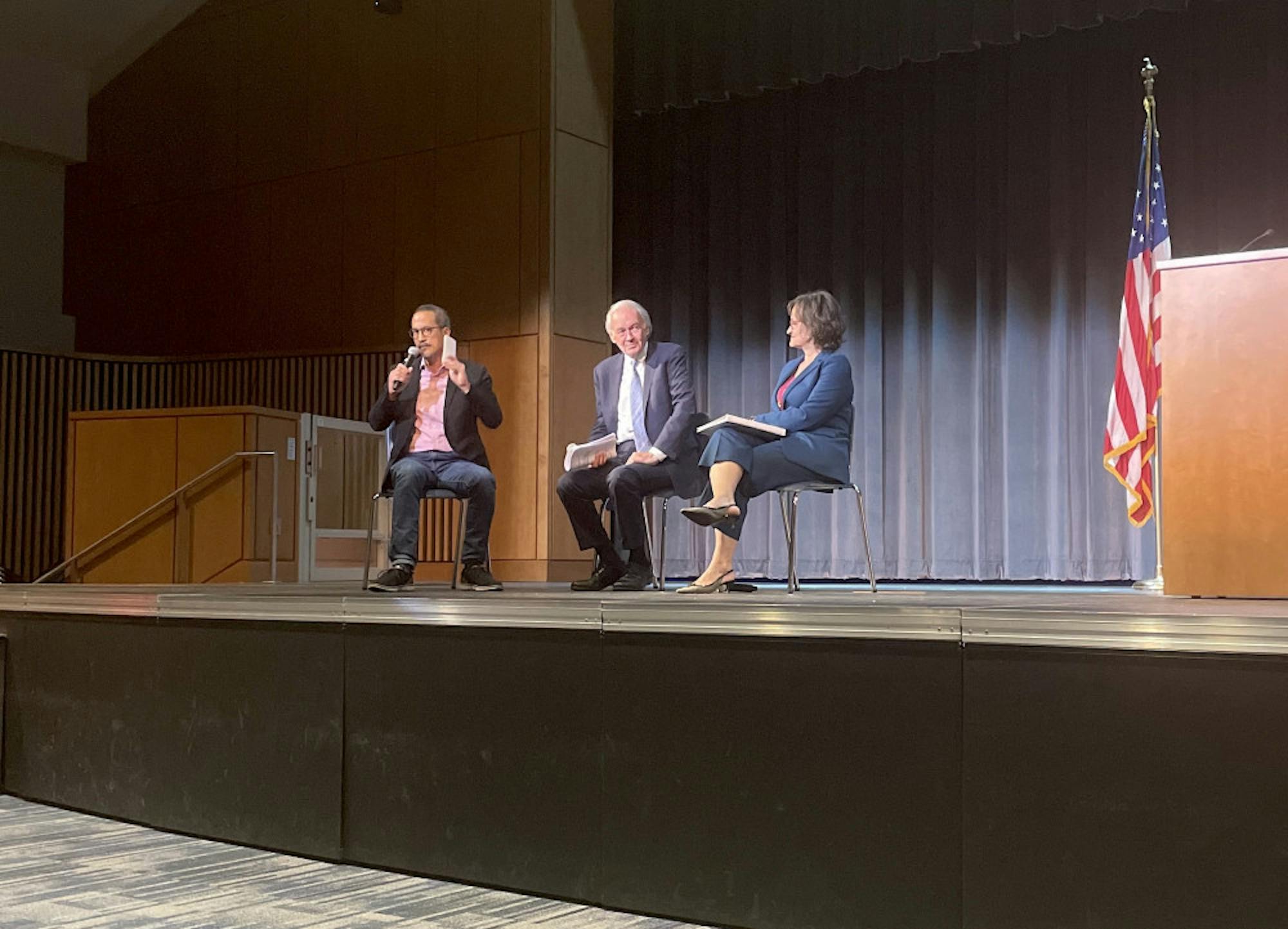Massachusetts Sen. Ed Markey and Somerville Mayor Katjana Ballantyne spoke at Somerville High School on April 24 to discuss the Green New Deal and its local implications.
The Green New Deal is a resolution aimed at mobilizing every aspect of American society toward a 100% clean and renewable energy system by 2050.
Mayor Ballantyne opened the meeting by describing the climate action progress that Somerville has already begun and the city’s goals for the upcoming years.
“We can make Somerville a national leader, a national model for climate resilience, connecting our environmental efforts with the city work on housing with the economy and social justice,” Ballantyne said.
She described how Somerville is already ahead of the curve, being “one of the first communities in the country to set a goal to be carbon negative by 2050.”
Ballantyne also described the goals she has for the city in the coming year. Her administration is laying out an action plan in 2023, which would — according to Ballantyne — focus on those residents of the city that are the “most likely to bear the brunt of climate change impacts.”
Ballantyne believes that a specific reduction factor crucial for reaching this goal is green transportation.
“We need to continue making sustainable transit the safe, easy choice for getting around,” Ballantyne said.
With the Green Line Extension up and running, she noted that 85% of Somerville residents are within a 15-minute walk of a T station, which is a large improvement from recent years.
Along with transportation targets, she said she hopes for Somerville to join a state-run project that allows municipalities to prohibit fossil fuels in new constructions and major renovations.
“In Somerville, buildings account for two-thirds of all greenhouse gas emissions,” Ballantyne said. “To achieve carbon-negative status, we’ll need to make our buildings carbon-free. We’ve begun restructuring some of the city’s housing division to create a clean, green Somerville, a division focused on weatherization and energy efficiency of existing residential buildings.”
Along with this, she said her office put $1 million into helping low-income property owners with their comprehensive home improvements.
Ballantyne ended her speech by quoting the Intergovernmental Panel on Climate Change.
“The world already has many of the tools required to shift away from fossil fuels and slow down climate change,” Ballantyne said. “It’s doable, but it’s not getting done. We just need the will to invest in the transition from fossil fuels. In Somerville, we have that will.”
Markey noted the historic changes in Somerville as a leader for environmental solutions and described how low-income communities across America have faced the brunt of the consequences of the country’s delayed action on climate change.
“We have to reduce the overall risk long-term to those who are most vulnerable in our society,” he said.
According to Markey, the first step in doing this is by creating new technologies to help reduce the catastrophic consequences of climate change.
“It turns out that the demand is massive for wind and solar, for electric vehicles and for battery storage technologies,” Markey said.
He also argued that implementing these technologies will not only give the country more sustainable ways to derive energy but will also provide jobs for those who face the largest consequences.
“Ultimately, we want 40% of all the [funding for the Green New Deal] to go into communities of color, into Native American communities and into those communities that have historically always been sacrificed,” Markey said.
Markey hopes that this action will lead to a larger global response by providing justice to even more victims of environmental racism and classism.
“It’s going to create justice for those communities that have historically been most affected adversely by climate change, by environmental justice, and ultimately, it’s going to trigger a global response of climate action,” he said.
Markey wants this work in climate change reduction to impact the future in monumental ways. He spoke of these hopes and pictured a world where “children actually have to look to the history books to find that there was a climate crisis.”






